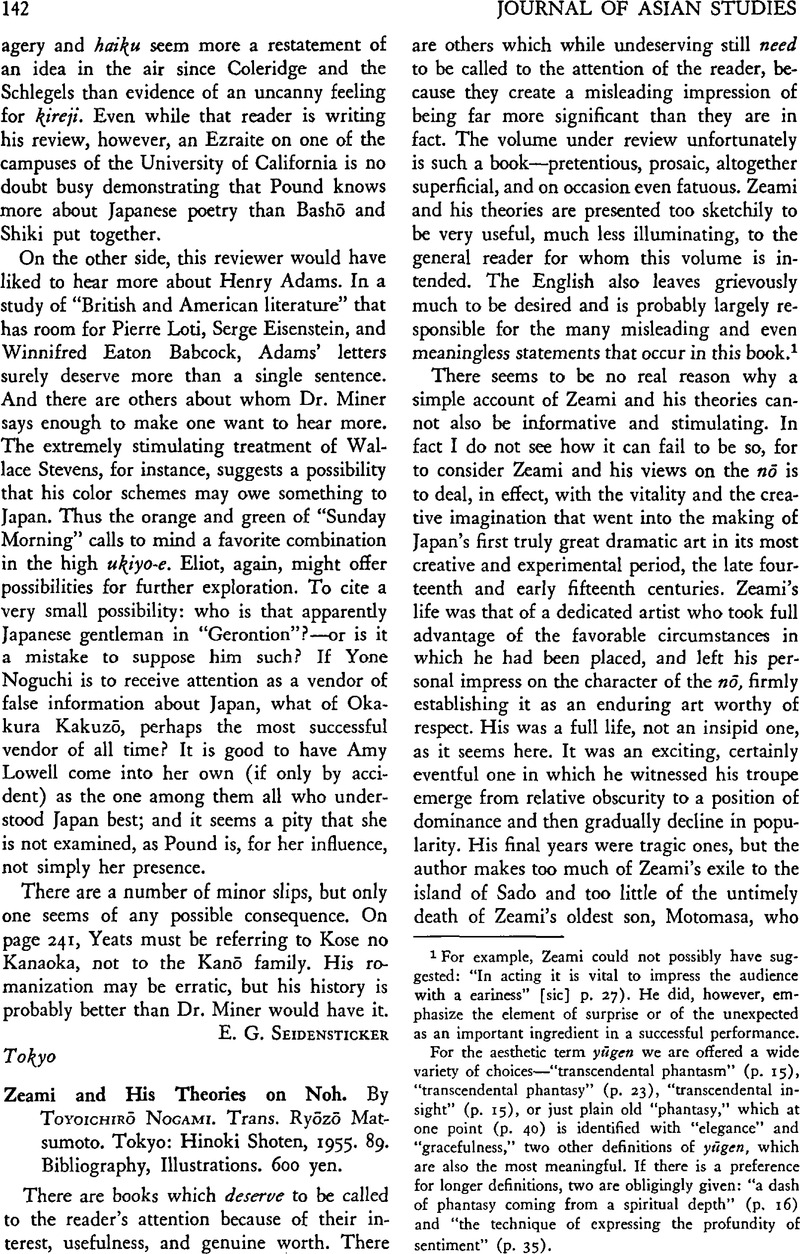No CrossRef data available.
Published online by Cambridge University Press: 23 March 2011

1 For example, Zeami could not possibly have suggested: “In acting it is vital to impress the audience with a eariness” [sic]p. 27). He did, however, emphasize the element of surprise or of the unexpected as an important ingredient in a successful performance.
For the aesthetic term yügcn we are offered a wide variety of choices—“transcendental phantasm” (p. 15), “transcendental phantasy” (p. 23), “transcendental insight” (p. 15), or just plain old “phantasy,” which at one point (p. 40) is identified with “elegance” and “gracefulness,” two other definitions of yügen, which are also the most meaningful. If there is a preference for longer definitions, two are obligingly given: “a dash of phantasy coming from a spiritual depth” (p, 16) and “the technique of expressing the profundity of sentiment” (p. 35).
2 See my “Zeami on the Art of Training,” HJAS, XVI (1953) 200–225, esp. n. 1.